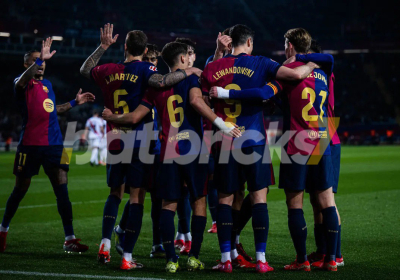Explained: Rare deadlock emerges in Euro 2024 as Denmark finish above Slovenia because of THIS rule

Euro 2024 as Denmark finish above Slovenia
The UEFA Euro 2024 group stage is now in its final lap as teams have started booking their place in the Round of 16 to navigate their path to European glory.
From Group C on Tuesday (June 25), Denmark and Slovenia joined England in the R16 but saw the rarest of rare deadlock cases which determined the standings in the group. Luckily, the current Euro format allowed Slovenia to take their place in the R16 but it might not have been the case had the rare deadlock case occurred in Euro 2012 or editions previous to it.
What was the deadlock situation?
After both Denmark and Slovenia completed their group stage campaign at Euro 2024, both teams were unable to be separated as they finished with a rare case of multiple ties. While England won Group C with five points, Denmark and Slovenia remained unbeaten but both mustered three draws in the process picking up three points from their matches. In this case, UEFA rulings state that head-to-head record becomes the criteria to determine the higher seeding.
UEFA rules in group tiebreaks
Higher number of points obtained in the head-to-head matches played between the teams in question.
Superior goal difference resulting from the head-to-head matches played between the teams in question.
Higher number of goals scored in the head-to-head matches played between the teams in question.
If, after having applied criteria 1 to 3, teams still have an equal ranking, criteria 1 to 3 are reapplied exclusively to the matches between the teams who are still level to determine their final rankings. If this procedure does not lead to a decision, criteria 5 to 10 will apply.
Superior goal difference in all group matches.
Higher number of goals scored in all group matches.
If on the last round of the group stage, two teams who are facing each other are tied in points, goal difference and goals scored then they drew their match, their ranking is determined by a penalty shootout. (This criterion is not used if more than two teams had the same number of points.)
Lower disciplinary points total in all group matches (1 point for a single yellow card, 3 points for a red card as a consequence of two yellow cards, 3 points for a direct red card, 4 points for a yellow card followed by a direct red card.
However, none of the above eight criteria separated Denmark and Slovenia. They ended with identical head-to-head, goal difference, goals scored and disciplinary record with six yellow and no red cards.
This meant UEFA had to apply the qualifier standings as the criteria to separate both sides where Denmark had the edge having picked up four points during the Euro 2024 qualification stage compared to Slovenia's one point.
The third-place finish was good enough for Slovenia to reach the R16 as they had a better record than Hungary and Croatia in the best-performing third-positioned sides. They will next face Portugal while Denmark, a victim of their own success, will face hosts Germany in the R16.





